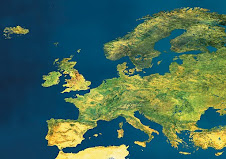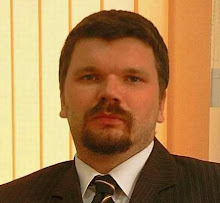
Like most of the
East European former communist countries,
Romania went trough a lot of functional, social and economic changes.
From the centralized, state-owned socialist economy, Romania became a modern market-focused, mostly privately owned, capital-based economy. After joining the NATO and the European Union, all major international rating agencies improved the countrie's economical ratings.
So, regarding the economic growth\, Romania is slightly behind Greece, with a Growth Competitiveness Index (GCI) of 3.97 (as 4.08 for Greece or 4.62 Hungary and 5.55 for Denmark).
Source:
World Economic ForumAll macroeconomic indicators show a healthy economic growth and an increase of foreign investments. (except of course the year 2009, where the worldwide financial crisis interfered)
| MU | 2000 | 2001 | 2002 | 2003 | 2004 | 2005 |
|
|
| GDP growth | % | 2.1 | 5.7 | 5 | 4.9 | 8.3 | 4.1 |
|
|
| Industrial output growth | % | 7.1 | 8.4 | 6 | 3.1 | 4.3 | 2.5 |
|
|
| Final consumption | % | 1.4 | 6.3 | 2.4 | 6.9 | 10.2 | 8.5 |
|
|
| Gross Fixed Capital Formation | % | 5.5 | 10.1 | 8.2 | 9.2 | 10.1 | 13 |
|
|
| Foreign direct investments | Euro mill | 1147 | 1294 | 1212 | 1946 | 5183 | 5197 |
|
|
| Employment | Thou. pers | 4623 | 4619 | 4568 | 4591 | 4420 | 4704 |
|
|
| Unemployment | Thou. pers | 1007 | 827 | 827 | 659 | 558 | 523 |
|
|
| Unemployment Rate | % | 10.5 | 8.8 | 8.4 | 7.4 | 6.3 | 5.9 |
|
|
So, while other countries in the region had in 2008 a GDP growth of 0.5% (Hungary) or 3.2 and 3.5 (Czeh Republic and Slovenia), Romania had a growth of over 7.1%.
The strength of the economy was proven again trough the 2009 crisis, compared with -15.9 and -18.4 GDP loss in Lithuania and Latvia, Romania resisted with a GDP loss of 5.7% (estim)
| GDP Growth, % y-o-y | 2007 | 2008 | 2009 | 2010 est
|
| Czech Republic | 6 | 3.2 | -3.1 | 1.1 |
| Hungary | 1.1 | 0.5 | -6.4 | 0.1 |
| Poland | 6.6 | 4.9 | 1.0 | 3.4 |
| Slovakia | 10.4 | 6.4 | -4.2 | 1.3 |
| Estonia | 6.4 | -3.6 | -13.2 | -1.2 |
| Latvia | 10.2 | -2 | -18.4 | -2.3 |
| Lithuania | 8.9 | 3.2 | -15.9 | 0 |
| Romania | 6.2 | 7.1 | -5.7 | 0.3 |
| Bulgaria | 6.2 | 5.9 | -5.3 | 0.4 |
| Slovenia | 6.8 | 3.5 | -5.9 | 1 |
| Croatia | 5.6 | 2.4 | -5.1 | 1.1 |
| Turkey | 4.7 | 1.1 | -6.2 | 3.4 |
Source: http://www.emergingeuropemonitor.com
About ERP and CRM Systems in Romania.
The emerging Romanian economy offered in the last 10 years, for many multinational

and transnational corporations a great relocation opportunity. As a consequence, major players in the Automotive, Electronics and Telecom industry relocated (or started Greenfeeld investments) in Romania. We're talking about companies like Siemens, Alcatel, Continental, Nokia, Ford, Oracle, IBM etc.
The demand for CRM systems appeared together with the major multinationals.
Managing the relations with the customers, vendors and partners, the diversity of delivered/obtained goods and services,
Features like
Customer contract management;
References, Contract service and support;
Commission management;
Contact management; Channel management, Internationalization or Collaborative e-commerce (buy-side, sell-side, digital marketplaces) were eventually needed , in order to manage optimize and control the companie's business processes (focusing on CRM).

The BIG4 vendors for CRM (also ERP and other related software) are probably ORACLE, SAP, MICROSOFT and INFOR. Here a short list after a quick walk-trough in the ERP-CRM market.
Oracle - Siebel or Oracle CRM On Demand
SAP - SAP CRM
Microsoft - Microsoft Dynamics CRM Infor - Infor CRM Epiphany, ERP XA CRM, ERP SyteLine CRM - Sage Software - SageCRM.com
- Lawson - Lawson M3 Customer Sales and Service
- Salesforce.com - Salesforce.com Enterprise Edition
- SugarCRM - SugarCRM Suite
- Surado Solution - Surado CRM TOTVS S/A -
- Microsiga Protheus Maximizer Software - Maximizer CRM
- BizAutomation.com - BizAutomation CRM + Business Management
- Epicor - Clientele CRM.NET

- Sage Software - Sage SalesLogix
- b2bCRM A/S - b2bCRM
- Consona - Onyx Adaptive CRM
- Impact Profile - Health Care Management System
- Intélisis S.A. de C.V. - Intelisis ERP
- Kepler - Kepler
- Oncontact - Oncontact CRM
- SemaTree Inc - ECS 2003
- SuperOffice - SuperOffice
- SYSPRO - SYSPRO CRM
- Vertical Marketing, Inc. - crmEZ.net
- IFS - IFS CRM
- Exactus de Costa Rica - Exactus CRM Metrix LLC -
- Metrix Deltek Systems - Deltek CRM & Propoals
- TOTVS S/A - LOGIX CRM
Bottom-line is, that the demand for Data and Process Management Tools is growing.
The Romanian economy within the global market is a continuously evolving organism, with various and many business opportunities.






